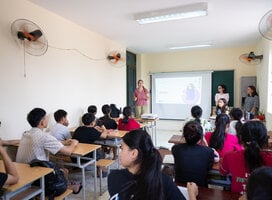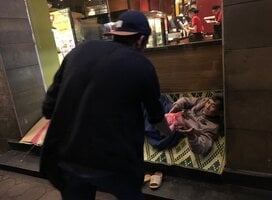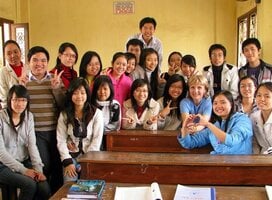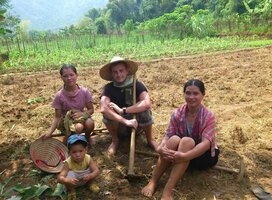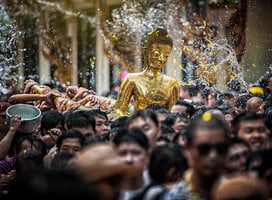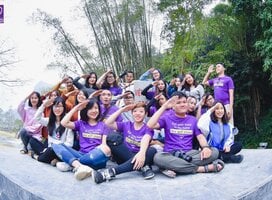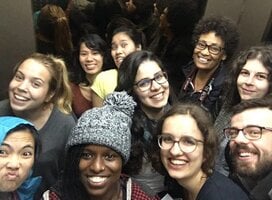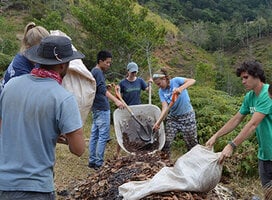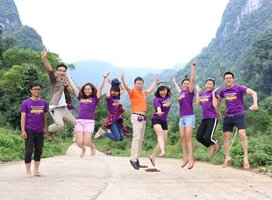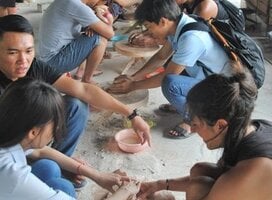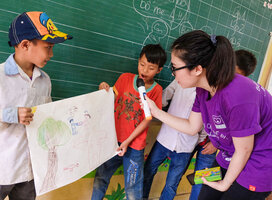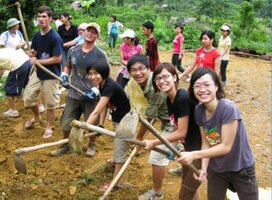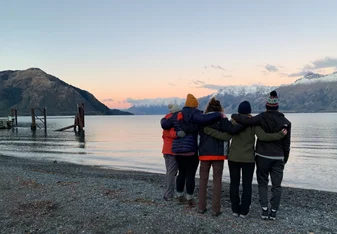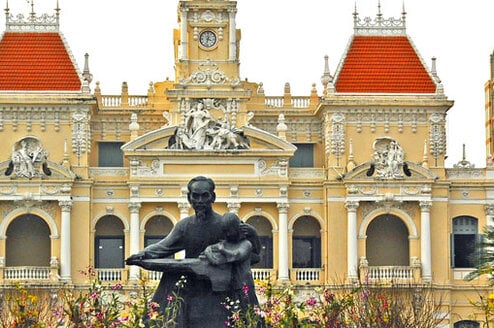Volunteer in Hanoi, Vietnam
Something wonderful happens to the soul when you do something good for someone else. You become lighter, freer. It brings a bounce to your step and a smile to your lips. That feeling becomes magnified when you know that the good thing you have done for that person will in turn be good for others. So, spread the cheer and feed the soul by volunteering in Hanoi, Vietnam.
Hanoi, the capital and second largest city in Vietnam. With a tropical climate, temples, museums, parks and theatres, one can understand why it would be an adventure to volunteer in this city. It is also known to be one of the best places for exotic food, and strong stomachs, hosting such foods like cobra and giant water bug. Yet, outside of the beauty and cuisine, Hanoi is in need of volunteers.
Education: English is becoming the most common language for international business and communication. Most private schools in Hanoi offer English to their students but many state funded schools can not afford to staff English language teachers. Volunteering at one of these schools will expose the less wealth students to foreigners possible for the only time while they are in school. Typical hours are 10-20 per week in the classroom with five day on duty and two days off. Lesson planning can be an additional 5 hours per week. You can choose to do extra school activities if offered.
Healthcare: In a city of 6.5 million people, hospitals and healthcare are important. Many hospitals are understaffed and tourists or expats can find it difficult to navigate because of the language and differences in how an appointment is set up. Hours and days will vary depending on if you are volunteering to work with sick children or along side the medical staff.
Social Enterprise: In 1986, Vietnam put in place a new policy called doimoi which helped free the central economy and businesses grew. Yet, the poorest of Hanoi still live hand to mouth. There is now a movement of social entrepreneurs that are helping to make changes but are in need of help. Volunteers work about 6 hours per day at local organizations with technical and financial support. Other tasks include marketing, research, reporting, grant writing, networking and fundraising...
- Various Requirements: Different volunteer programs have different requirements. Most positions will require you to be 18 or older with at least at high school diploma. Teaching English volunteers must be fluent in English although a degree or certificate helps tremendously. Medical volunteers must have training or an educational background. All volunteers must have a criminal background check preferably before arrival to the country. Being a volunteer means there is no pay. Most programs require a fee but provide housing. food and visa assistance. Prepare for hot summers and cool to cold winters.
- Best Places to Volunteer: One of the top places to volunteer is with UBELONG which offers positions in education, medical, social entrepreneurship and caregiving. Another great one is through the United Nations. They also have a wide variety of volunteer options but you do not always get to choose your location. Friends of Asia has opportunities in education, children’s hospitals and local orphanages. Computers are the best tools for finding positions. Research the organization and choose a volunteer position with the company that best fits you and your skills. Remember, you are traveling to another country. Language, food, money and culture will be different. This is an opportunity not only to teach something new but to learn something new.
Health and Safety of Volunteers in Hanoi
When traveling, be sure that you are up to date on the regular vaccinations such as measles, mumps, rubella and yearly flu shot. Other vaccinations you should have before traveling to Vietnam are Hepatitis A and Typhoid since these can be spread through food and water no matter where you are staying. Some other shots to keep in mind but are not required are Japanese Encephalitis, Yellow Fever, Rabies, Hepatitis B and Malaria. Remember to wash your hands and beware of street vendors that don’t have access to clean water and soap since Cholera is also an issue. Air pollution in Hanoi is also high. Simple masks help to cut down the intake of pollution.
One of the highest safety concerns in Hanoi is public transportation. Buses can be confusing. There are people and scooters everywhere. Be careful when walking in high traffic areas. Since Hanoi is the second largest city, crowds can be an issue and beware of pickpockets. Taxis, pharmacies and vendors tend to charge foreigners a higher fee than locals so keep an eye out when buying items or riding public transportation. If there is a medical emergency, there are two hospitals that are easy for foreigners to use: Hanoi French Hospital and Vinmec International Hospital.
Contributed by Jennifer Lentz
